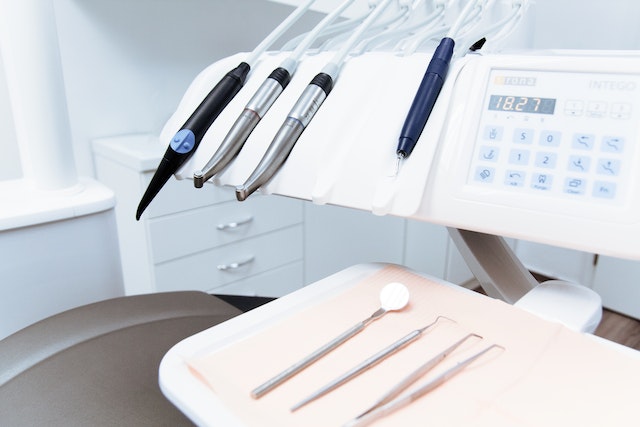
Image from Pexels
A career as a dentist is one of the top 10 careers in the U.S. according to the 2023 U.S. News & World Report. Specialties orthodontist and oral and maxillofacial surgeon landed in 14th and 24th place. On average, a general dentist can earn up to $200,000 or more yearly. Below you’ll find information on how to become a general dentist and pursue your career goals.
Obtaining an Education
You’ll need a bachelor’s degree before applying to most dental schools. A few might accept you even if you don’t have a bachelor’s degree. But you’ll still need at least two or three years of undergraduate education.
There are currently 70 accredited dental schools in the U.S. The majority of the schools are four-year programs. Roseman College of Dental Medicine and the University of the Pacific Dugoni School of Dentistry are exceptions, as they offer three-year programs.
Dental schools don’t require a specific undergraduate major. For example, you could earn an undergraduate degree in journalism and still apply to dental school after graduation. Most aspiring dental students major in biology or chemistry, but it’s not a prerequisite.
Your dental school of choice will likely have dental school requirements. These are classes that you must take during your undergraduate studies. Biology, general chemistry, organic chemistry, and physics with lab are often required. You must also pass the Dental Admissions Test (DAT). The DAT isn’t a pass-fail type of test. The test is scored on a 1 to 30 scale, and each dental school decides which scores are acceptable. It’s best to score as high as you can.
Letters of recommendation are also required for admission to dental school. The school for which you’re applying will let you know how many letters you need. Your recommendation letters can come from a dentist, employer, professor, or employer. The dental school personal statement is also an important part of the admission process.
Your personal statement needs to grab the attention of the admissions committee. The goal is to spark interest and land an interview with your school (or schools) of choice. Your personal statement should not exceed 4,500 characters. But it should paint a picture of you as a person and explain why you want to become a dentist.
After Dental School
You’ll receive a DDS or DMD after graduating from dental school. Both degrees are equivalent and have the same requirements and accreditation. For example, dental offices in Chicago might have dentists with either a DDS or DMD. Neither degree is more valuable than the other.
The DDS is the Doctor of Dental Surgery degree. This degree was given by the first dental school in the U.S. When Harvard founded its dental school, it began to grant the DMD degree, which stands for Doctor of Dental Medicine (originally Doctor Medicinae Dentariae in Latin). Dental schools can now choose which degree to give their graduates, with the DDS being the most popular.
Years Invested in a Dental Career
You’ll spend at least eight years preparing to become a dentist. Your dental school will likely require you to have an undergraduate degree. That takes four years to earn. Then you’ll need at least four years of dental school to earn your DMD or DDS. If you want to specialize beyond being a general dentist, you’ll have to train for your specialty.
There are 12 specialties within the field of dentistry. These are areas in which you can specialize that go beyond being a general dentist. The 12 specialties are:
1. Periodontics
2. Prosthodontics
3. Orthodontics and dentofacial orthopedics
4. Pediatric Dentistry
5. Dental anesthesiology
6. Dental public health
7. Endodontics
8. Oral and maxillofacial pathology
9. Oral and maxillofacial radiology
10. Oral and maxillofacial surgery
11. Oral medicine
12. Orofacial pain
Conclusion
Working in any of these specialties means you’ll have to do a residency after graduating from dental school. A residency will usually take anywhere from two to three years to complete. The exceptions are moral and maxillofacial surgery residencies, which take four to six years to complete.
Becoming a Dentist
You’ll have the credentials to become a dentist after completing all the educational requirements. You can choose to open your own practice, join an existing practice, or put your skills to work in some other capacity – such as specializing in children’s dentistry.


